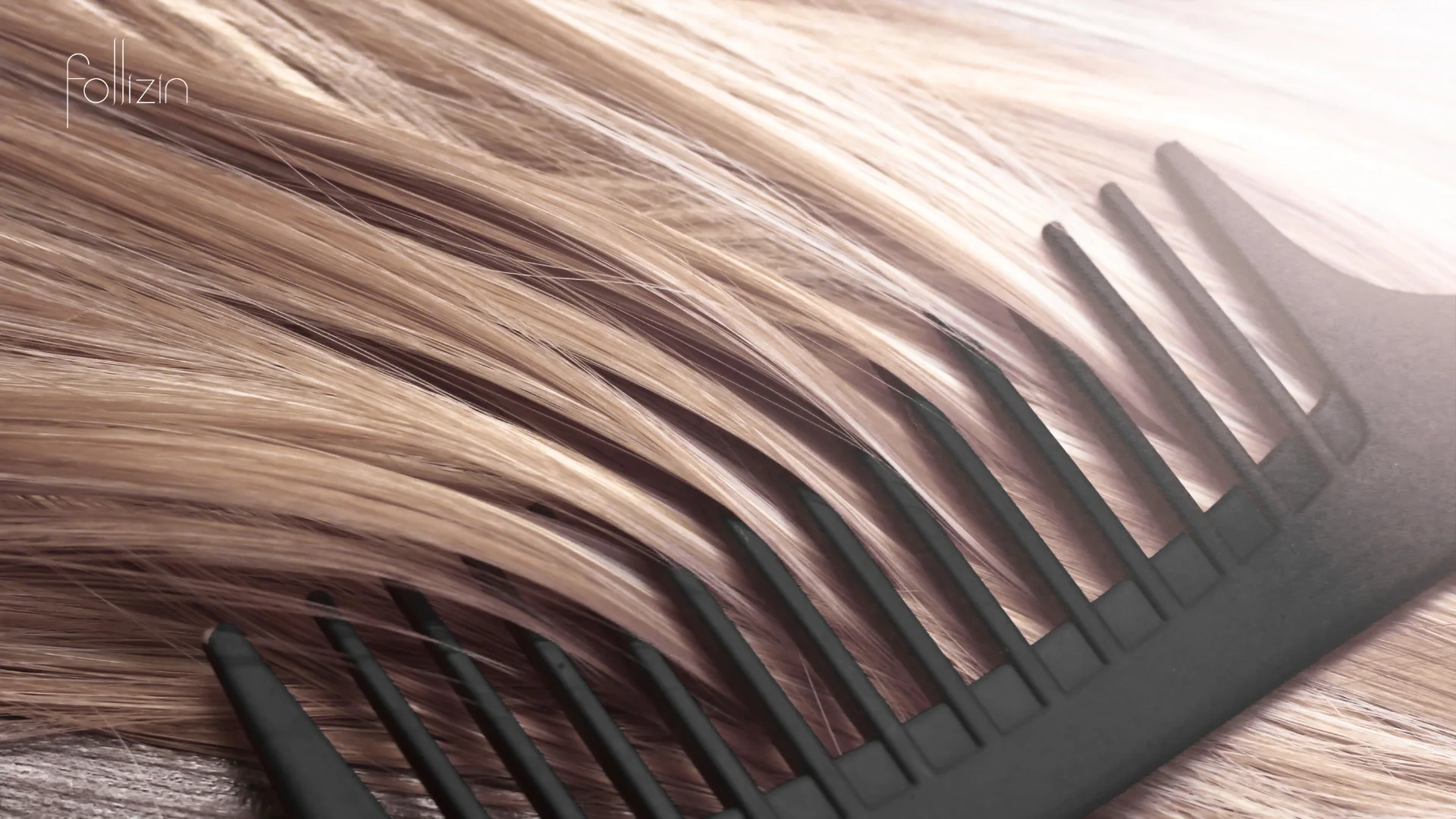If you have a sensitive scalp, you know how frustrating it can be! Even a small change in shampoo, weather, or sweat can cause itching, redness, irritation, or dandruff. Sometimes, rashes or bumps may appear, making you lose confidence. Follizin is here to help you understand sensitive scalps, their causes, and easy self-care techniques to restore a healthy, strong scalp.
What Causes a Sensitive Scalp?
A sensitive scalp (sensitive skin on the head) reacts more easily to external triggers than normal, leading to irritation like itching, burning, redness, flakiness, or rashes. Common causes include:
- Genetics: Some people are naturally prone to sensitive skin, including the scalp.
- Environmental Factors: Weather changes, pollution, and sun exposure can irritate the scalp.
- Hair Care Products: Harsh chemicals in shampoos, conditioners, styling products, or hair dyes—such as SLS, parabens, and fragrances—can trigger allergies.
- Stress: Stress weakens the immune system, making the scalp more prone to irritation.
- Skin Conditions: Conditions like seborrheic dermatitis or psoriasis can mimic sensitive scalp symptoms.
Easy Techniques to Care for a Sensitive Scalp
Here’s how you can care for your sensitive scalp at home:
1. Use Gentle Hair Products
Choose shampoos and conditioners labeled as hypoallergenic or specifically designed for sensitive scalps. Avoid harsh chemicals like SLS, parabens, silicones, and synthetic fragrances.
2. Wash Your Hair Properly
Use lukewarm water instead of hot water, as heat can dry out and irritate the scalp. Gently massage your scalp with your fingertips (not nails) and rinse thoroughly to remove all product residue.
3. Avoid Heat Styling
Blow-drying, flat-ironing, or perming can dry out and irritate the scalp. Let your hair air dry whenever possible, or use a hairdryer on a low-heat setting.
4. Protect Your Scalp from the Sun
Wear a hat, use an umbrella, or apply sunscreen specifically formulated for the scalp when spending extended periods outdoors.
5. Take Care of Your Overall Health
Eat a balanced diet, stay hydrated, get enough sleep, and manage stress to support overall skin and scalp health.
6. Test New Products Before Use
Always patch-test new products on the inner arm before applying them to your scalp to check for allergic reactions.
7. Consult a Dermatologist
If you experience severe itching, redness, irritation, or rashes, seek advice from a dermatologist for proper diagnosis and treatment.
Start taking care of your scalp with these simple tips for a healthier, stronger scalp and beautiful hair.

